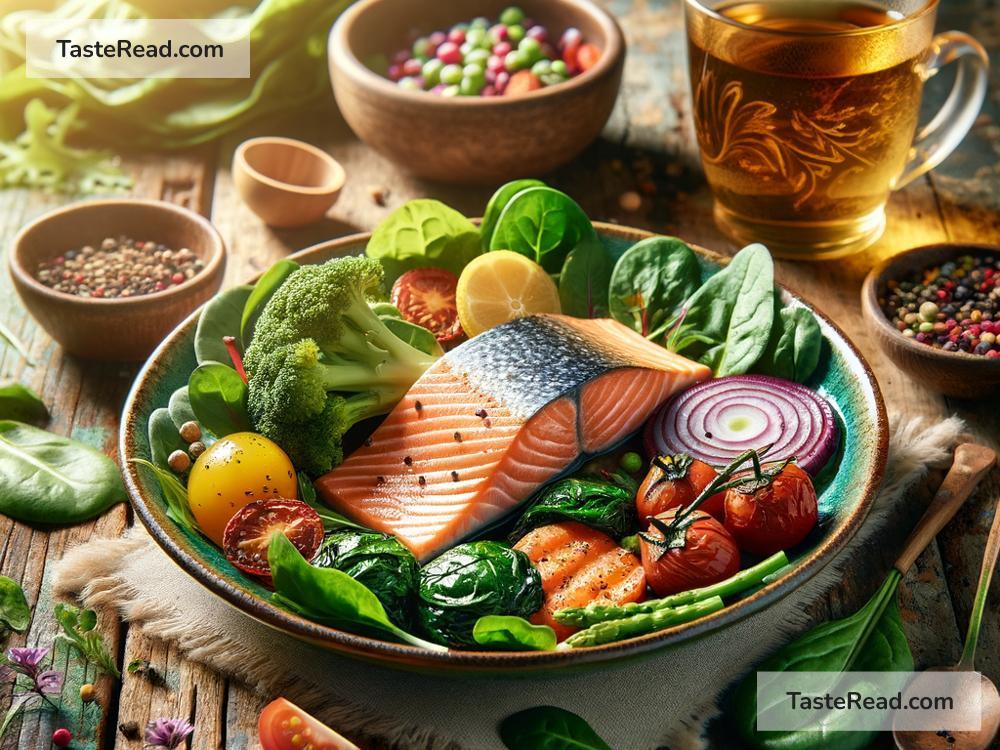Understanding the Connection Between Diet and Mood
You’ve probably heard the saying, “You are what you eat.” While this phrase usually refers to physical health, it also applies to your mental and emotional well-being. What you eat can directly impact how you feel, how you think, and your overall mood. In this blog, we’ll explore how diet affects your mood in simple terms and talk about what foods you can eat to feel your best.
How Diet and Mood Are Connected
Your brain is like a car engine—if you want it to run smoothly, you need to give it the right fuel. The food you eat provides nutrients that your brain uses to function properly. When your diet is balanced and full of healthy foods, your brain gets the energy and chemicals it needs to stay alert, focused, and happy. But when your diet lacks nutrients or is full of junk food, your brain struggles, which can leave you feeling tired, irritable, or even anxious.
Scientists have been studying the connection between diet and mood, and they’ve discovered that certain foods and nutrients play important roles in mental health. For example, protein-rich foods can help your brain produce dopamine and serotonin, chemicals that make you feel happy and calm. On the other hand, sugary and highly processed foods can lead to crashes in energy and possibly worsen feelings of stress or sadness.
The Role of Gut Health in Mood
Did you know your gut and your brain are closely connected? This relationship is called the “gut-brain axis.” Your gut contains billions of tiny organisms, called gut bacteria, that help digest food and keep your immune system strong. These bacteria also produce substances that can affect your mood.
When you eat a healthy diet full of fiber, fruits, vegetables, and fermented foods like yogurt, you promote the growth of “good” gut bacteria. This can boost your mood because these bacteria send positive signals to your brain. Conversely, eating a lot of processed or sugary foods can encourage the growth of “bad” bacteria, which may increase inflammation and make you feel worse mentally and emotionally.
Common Foods That Influence Mood
Let’s take a look at some specific foods that can impact how you feel—both in positive and negative ways.
Foods That Boost Your Mood:
- Fruits and Vegetables: Colorful fruits and vegetables, like berries, spinach, and sweet potatoes, are loaded with vitamins and antioxidants that support brain health.
- Whole Grains: Foods like oats, quinoa, and brown rice help keep your energy stable, which can improve focus and reduce irritability.
- Fatty Fish: Salmon, mackerel, and sardines contain omega-3 fatty acids that are known to reduce symptoms of depression and anxiety.
- Nuts and Seeds: Almonds, walnuts, chia seeds, and flaxseeds provide healthy fats and magnesium, which can help calm nerves and encourage better sleep.
- Yogurt and Fermented Foods: Foods like yogurt, kefir, and sauerkraut contain probiotics that promote gut health and, in turn, boost mental health.
- Dark Chocolate: In moderation, dark chocolate can improve mood and reduce stress because it increases serotonin levels in the brain.
Foods That Can Negatively Affect Mood:
- Sugary Snacks: Candy, sodas, and baked goods might give you a quick energy boost, but your mood will likely crash shortly after.
- Processed Foods: Fast food and packaged snacks often contain unhealthy fats and additives that can worsen inflammation and affect brain function.
- Alcohol: While alcohol can temporarily make you feel relaxed, it often disrupts sleep and leads to mood swings.
- Caffeinated Drinks: Coffee and energy drinks can raise anxiety levels if consumed excessively, especially later in the day.
How to Build a Mood-Boosting Diet
Now that you know the basics, how can you improve your diet to support a better mood? Start by incorporating more whole foods into your meals. These include fresh fruits, vegetables, whole grains, lean proteins, and healthy fats. Limit your intake of processed foods and sugar, and try to eat smaller portions more frequently throughout the day to keep your energy even.
If you’re not sure where to start, here’s a simple meal plan to boost mood:
– Breakfast: Greek yogurt with fresh berries and a sprinkle of chia seeds.
– Lunch: Grilled salmon with quinoa and roasted vegetables like carrots and broccoli.
– Snack: A handful of almonds or a piece of dark chocolate.
– Dinner: A stir-fry made with chicken or tofu, brown rice, and colorful veggies.
– Hydration: Drink plenty of water throughout the day, and try herbal teas for a caffeine-free option.
Beyond Food: Lifestyle Factors That Affect Mood
While diet plays a big role in your emotional health, it’s only part of the picture. Regular exercise, enough sleep, and managing stress are also crucial. For example, combining healthy eating with daily physical activity can help release feel-good chemicals in your brain, like endorphins. Similarly, prioritizing sleep gives your body and mind the rest they need to recharge.
Final Thoughts
The connection between diet and mood is undeniable. Choosing nutritious, whole foods not only improves your physical health but also supports your mental and emotional well-being. By incorporating mood-boosting foods into your daily meals and limiting processed options, you’ll be investing in a happier, healthier version of yourself.
So next time you open your fridge, think about this: the foods on your plate aren’t just fueling your body—they’re also shaping your mood and mindset. Healthy eating doesn’t have to be complicated or boring, and every small change you make can have a big impact on how you feel every day.


